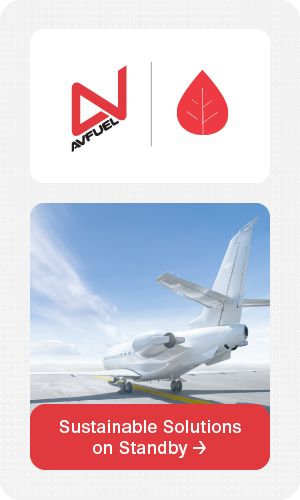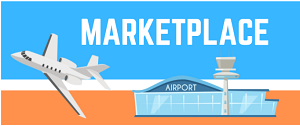
President’s Message
Business aviation has long been a proponent of technology, including the development and adoption of SAF, as a crucial element in reducing greenhouse gas emissions.
Over the next several weeks, the business aviation industry is looking forward to exploring the answer to a key question on attaining our sustainability goals: “Is BizAv moving far and fast enough?” This question becomes increasingly important as we approach key environmental milestones set by the industry and, more recently, by the Biden Administration.
I had the honor to participate in a White House Roundtable on Sustainable Aviation in September, where the Administration announced the launch of a government-wide Sustainable Aviation Fuel Grand Challenge to expand the production and use of Sustainable Aviation Fuel (SAF) that achieves a minimum of a 50 percent reduction in lifecycle greenhouse gas (GHG) compared to conventional fuel. Among other aims, the challenge adopts a goal of supplying at least three billion gallons of SAF per year by 2030 and, by 2050, achieving a sufficient SAF supply to meet 100 percent of aviation fuel demand.
The Grand Challenge spells out action steps, including policy measures, technology advancements, and executive actions, that not only reduce aviation’s environmental impact, but also support energy independence and create jobs in infrastructure, research and development, and other areas.
President Biden’s endorsement of the SAF Blender’s tax credit promoted by NATA and the industry on Capitol Hill; the FAA, DOE, and DOT’s focus on sustainability grants for SAF; and the Grand Challenge are slated to play critical roles in a broader set of actions by the United States government and the private sector to put the aviation industry on a pathway to full decarbonization by 2050. We are working with the agencies and our SAF producer members to ensure the voices of business aviation and aviation businesses are heard.
Business aviation has long been a proponent of technology, including the development and adoption of SAF, as a crucial element in reducing greenhouse gas emissions. NATA is a founding member of the Business Aviation Coalition for Sustainable Aviation Fuel, created by global aviation organizations to first address a “knowledge gap” on the availability and safety of SAF while advancing the proliferation of alternative jet fuels at all the logical touchpoints: manufacturers, ground handlers, and operators at the regional, national, and international levels. It has been my honor to serve as the Coalition chair from its inception—our progress is a true testament to collaboration among the associations (EBAA, IBAC, HAI, CBAA, CAAFI, GAMA, NBAA, and NATA), as well as the many aviation businesses that serve on its steering committee.
For the past five years, the Coalition has released informational guides and other resources, held virtual summits, and organized SAF Fly-Ins across the globe to educate industry leaders, policymakers, and others on the benefits and viability of SAF. And, given the current limited availability of SAF, the aviation business industry continues to pursue innovative measures to augment or stand in for SAF usage, including programs such as Book & Claim. The concept of Book & Claim presents another excellent opportunity for industry engagement
and education. To that end, you can find two important communication resources developed by the Coalition by following these links: Introducing Book & Claim and SAF FAQ. We thank the members of the Business Aviation Coalition for Sustainable Aviation Fuel Steering
Committee and Education Subcommittee for their dedication and work to advise key stakeholders and create resources that assist our members in communicating important sustainability information.
Our industry’s efforts have gained important footing with the Administration’s focus on initiatives that will help scale SAF production. As we explore the question of where our industry stands in achieving our environmental goals, one thing is clear: the enhanced collaboration,
education, and community outreach taking place in this moment will expedite our success in getting us where we need to be. We all have important roles in ensuring our commitment to and progress on aviation business environmental initiatives is heard loud and clear.
Visit www.futureofsustainablefuel.com to learn more about the business aviation industry’s SAF initiative and for updates on upcoming sustainability events. If you have questions or concerns, or would just like to talk with me regarding our efforts, I can be reached at tobitts@nata.aero or at (202) 774-1504.






